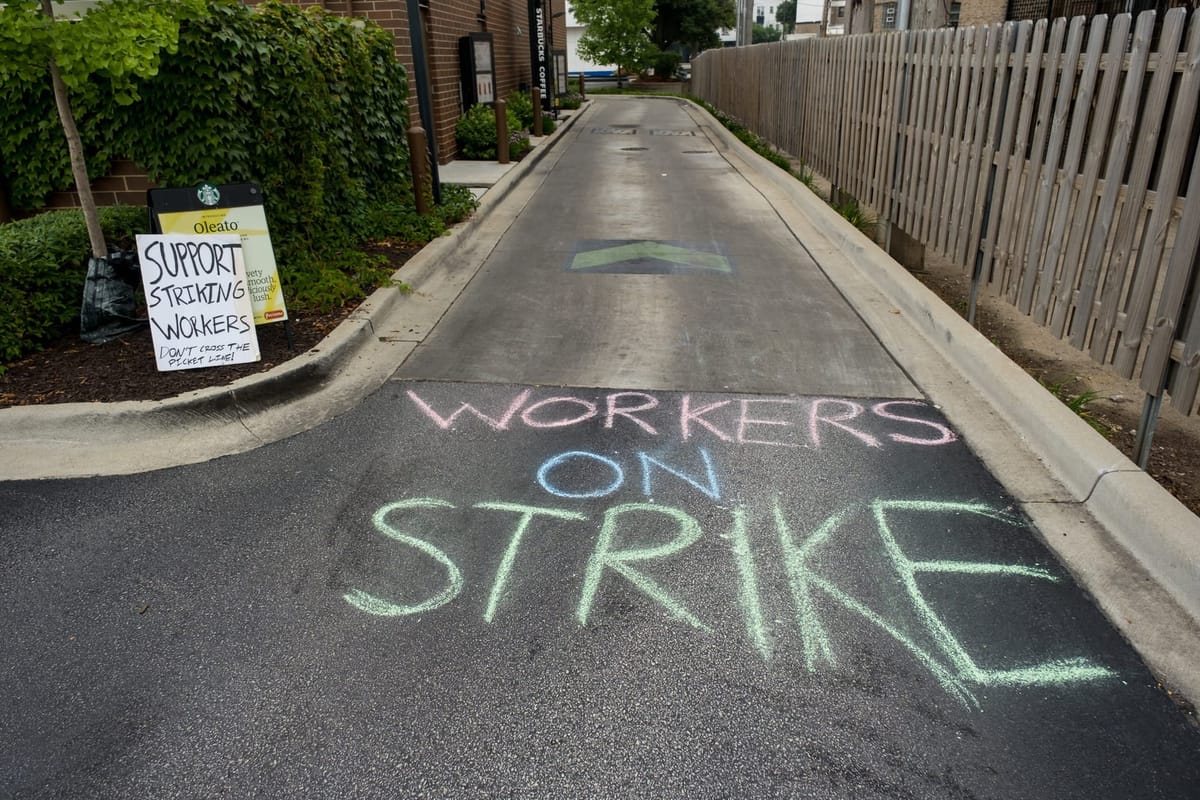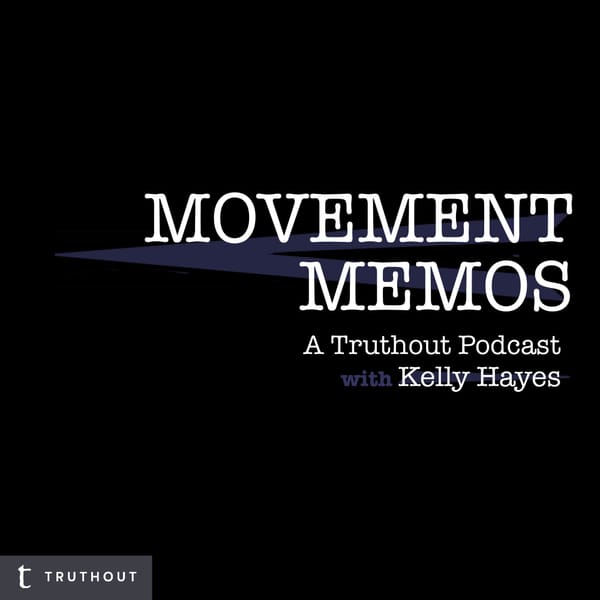Billionaires' Blitz: The Battle to Dismantle Worker Rights
“If there was ever an example of corporations participating in historically fascist tactics, going after labor unions would be it,” says Shane Burley.


Under capitalism, workers and workers’ rights are always under attack, but this year, billionaires are taking those efforts to a whole new level. Elon Musk and Jeff Bezos, two of the wealthiest men on Earth, are working to eliminate the National Labor Relations Board (NLRB). The NLRB is a federal agency tasked with enforcing U.S. labor laws. Last week, Amazon became the latest company to submit a legal filing claiming that the existence of the NLRB is unconstitutional. In January, Musk’s SpaceX filed a lawsuit claiming that the NLRB is an “unconstitutionally structured agency.”
Among other things, the lawsuit filed by SpaceX claims the agency’s prosecutorial and judicial functions violate the separation of powers clause. The suit also takes issue with the fact that the NLRB’s administrative law judges can’t be fired by the president.
As Timothy Noah reported in The New Republic in January, Musk’s lawsuit is modeled after arguments made in SEC v. Jarkesy, a case before the Supreme Court this term. In his ominously titled piece Elon Musk’s Odious One-Man War Against Labor Law Just May Succeed, Noah wrote:
The plaintiffs, led by a hedge fund manager and sometime Fox News blowhard named George Jarkesy, got busted by the SEC for securities fraud and fined $300,000; in addition, the SEC barred Jarkesy from the securities industry. Like the NLRB, the SEC is barred statutorily from ALJs serving at the pleasure of the president. ALJs can be fired only for cause. The Fifth Circuit, the most conservative appeals court in the United States, ruled that this arrangement is unconstitutional, and the SEC appealed to the Supreme Court.
As Matt Ford reported in November, the Supreme Court’s conservative members seem open to the argument that federal regulatory agencies should not have their own administrative judges and prosecutors. “What sense does it make to say the full constitutional protections apply when a private party is suing you, but we’re going to discard those core constitutional historic protections when the government comes at you for the same money?” Brett Kavanaugh asked Department of Justice attorney Brian Fletcher during oral arguments.
Jarkesy’s case is reportedly being bankrolled by Musk and his fellow billionaire Mark Cuban.
In January, Trader Joe’s got in on the argument. During an NLRB hearing, in which the company was facing a laundry list of union-busting charges, Trader Joe’s’ attorney, Christopher Murphy, stated, “The National Labor Relations Act as interpreted and/or applied in this matter, including but not limited to the structure and organization of the National Labor Relations Board and the agency’s administrative law judges, is unconstitutional.”
Last week, Amazon joined the legal pile-on. Following more than 250 NLRB complaints against the company in recent years, Amazon now claims that “the structure of the NLRB violates the separation of powers” by “impeding the executive power provided for in Article II of the United States Constitution.”
The most concerning thing about these attacks is that they just might succeed. The Trump administration made dismantling the “administrative state” part of its agenda, and it has set the stage for that deconstruction with Supreme Court appointments.
Given Musk’s fascistic rightwing bend, and the contempt that fascists have historically had for trade unionists, it’s hard to see these developments outside the frame of a rising corporate fascism. In an era when corporations have poured millions into the development of a Cop City in Georgia, and Water Protectors have been tortured and incarcerated by an Enbridge-funded law enforcement task force in Minnesota, a billionaire-led effort to dismantle our right to organize our workplaces seems like part of a broader effort to control our lives, our movements and our ability to dissent.
Shane Burley, author of Fascism Today and Why We Fight, interprets these legal assaults through a fascist lens, viewing them as attempts to weaken organized labor and consolidate power in the hands of the billionaire class. “If there was ever an example of corporations participating in historically fascist tactics, going after labor unions would be it,” Burley told me in an interview. “This is an open assault not just on labor organizations but the entire working class,” he said. “As it stands, the NLRB is largely weighted in the direction of management and was established to siphon off the militant energy [of organized labor] that, without it, could have become revolutionary.”
According to Burley, these legal maneuvers are escalations in an ongoing class war being waged by corporations and billionaires. “By signing onto this, Amazon is showing its open contempt for the entire country's residents and believes that capital should run the entire economy without accountability.” Pointing to the involvement of Musk and Bezos, Burley noted, “It's fitting that two of the richest men in the world would use courts, filled with appointees of politicians funded by the wealthy, to attack the last vestiges of class struggle.” He emphasized that these actions also fall in line with Musk’s fascistic tendencies, which have been evident since before his takeover of Twitter. “[These actions are] in line with Elon Musk's rightward slide, where any institution that could provide any level of accountability for him and his businesses is viewed as an open threat.”
Burley does not believe these legal attacks are likely to succeed but says these efforts do indicate that “the next stage for anti-union attacks is to undermine the NLRB's legitimacy.” Burley argues that workers should respond to these threats from the ruling class with militant action. “The reality is that the NLRB was the alternative to the workers taking over the workplaces, kicking out the boss, and running it themselves,” Burley said.
Burley believes that dismantling the NLRB could have effects that the billionaire class has failed to consider. "If they get rid of [the NLRB] they will likely have to deal with millions of people wielding pitchforks and powered by seething rage,” he said. “What would happen if, with the NLRB defanged, the workers decided that they no longer respected the authority of capital and simply took over these businesses and used the distribution methods capital devised to ensure that everyone in the country had their material needs met?” Burley asked. “They hope that when they go after our organs of struggle, we will slip into complacency,” he said, “but the reality is that, with class consciousness escalating, their assault is just as likely to spark open insurrection.”
It remains to be seen whether this billionaire-led assault on organized labor will succeed or whether these attacks will lead to surges in worker militancy. One thing is certain: the billionaire class is going all in on their efforts to gut the rights and freedoms of the working class, and we had better be ready to respond.




